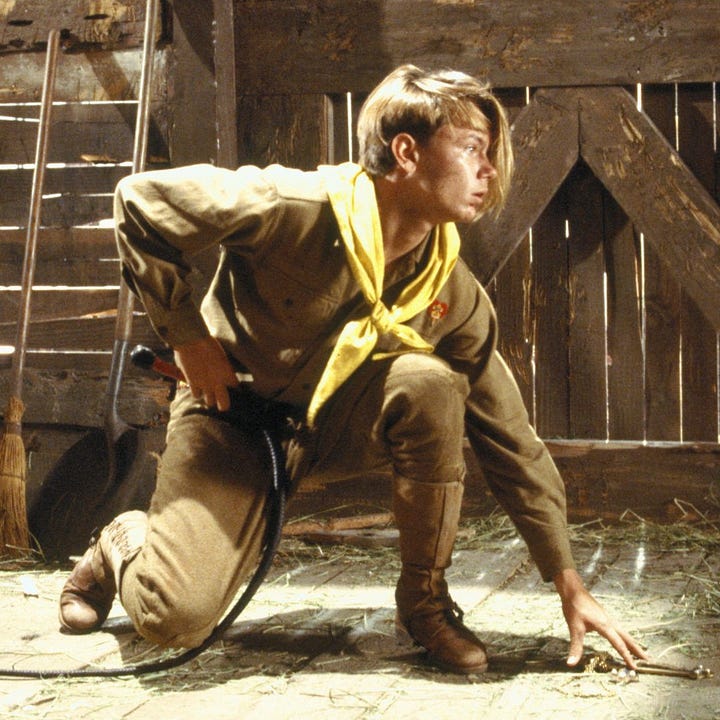Footnotes #2: On Strike
Thoughts on striking creatives, moderators, and whether technology is as neutral as we're led to believe
Hi, welcome to Dilemmas of Meaning, a journal at the intersection of philosophy, culture, and technology. This is the second post of ‘Footnotes’ in our Discovery series. Here we’re talking about what’s coming soon, a few thoughts on tech motivated strikes around the world, and getting meta as to what the hell we’re trying to do here.

Hi,
Thanks for reading our journal, we really appreciate it. This is going to be a different entry than our usual two thousand word essays, though those are coming. There are a few unstructured thoughts on my mind I’d love to put down on paper so here we go, in no particular order:
1. What’s coming down the pipeline
We often leave our teases of what we’re working on buried in our essays but I thought it’d be cool to leave more than breadcrumbs. I’m putting the finishing touches on an essay to complement the ‘Talking about Talking About AI’ piece. While that one talked about comparing AI (and other new tech) to science-fiction and the future, I tackle the same argument but from a different angle: Why do AI CEOs say their products might cause human extinction? This should hopefully be out within the next few days. I’m curious about your thoughts. Billy is working on two essays (overachiever), one on deepfake porn with a feminist angle and another riffing on the idea that Code is Law. This second essay diagnoses why, despite being proven time and time again that choices made by computers reproduce harmful biases, people consider these choices objective and neutral. If you’ve ever gone through an automated job application or been refused a credit card a second after applying, we hope this essay can offer you some catharsis.
2. Strikes, Capital, and Fran Drescher
From our home here in London, to Europe, to fishers off the coast of West Africa, labour strikes are in. As I write this, Fran Drescher who became well known as The Nanny has found new fame as the head of the SAG-AFTRA union. Her fiery speech declaring an actor’s strike has gone viral. I won’t get into the technicalities of the strike but one point kept getting repeated over and over and I have a few thoughts.
As part of the contract talks, a sticking point was the studios wanting to be able to scan the faces of background actors, pay them a day’s rate, and then own and be able to use their likeness in perpetuity. We’ve become (unfortunately) used to seeing actors dead and alive made young and available for our entertainment–from 2pac’s hologram to a chatbot Harriet Tubman. The Indiana Jones franchise works well to illustrate the change the industry has undergone, in 1989 when they needed to show a teenage Indiana, they cast the late River Phoenix, someone who might not look exactly like the older Harrison Ford but was able to match certain physical mannerisms and ways of speaking; he was able to be convincing by just acting. In 2023, the recent release also needed a younger version of the now much older Ford. Rather than doing the same and finding someone to act for the role, they digitally recreated a younger Ford and slapped it upon a no-name body. They chose technology over acting. I thought the effect was convincing enough and was by no means the issue that plagued the movie, however this binary between acting and technological solutions has been presented time and time again. Unfortunately, the side of technology seems to be winning.


An easy answer would be to shrug your shoulders and declare that this is simply the march of progress; adapt or die. We often see technology as inherently neutral, in the same way the sun rises in the east. What is important and how it ends up shaping our lives, planet, and society is how we use it; it’s a tool and a good crafter never blames their tools. However, not every technological development is created equally. Sociologist Bruno Latour made his name co-authoring the book Laboratory Life. In it, he observes the workings of a laboratory seeking to answer the question, how does knowledge get produced? His findings are many but one that stands out is the act of writing; labs churned out A4s like nobody else. Memos, studies, findings etc. all written and disseminated. If writing is the measure of scientific/technological production, today I wonder who is doing the writing and where is it taking place?
You or I could not create these kind of technological developments. These tools, as they require so much man power, server space, cost, capital become more and more the tools of the already rich and powerful. Further, the days of papers floating around a university laboratory or some other public institution. If Latour were to engage in his laboratory life today, he might spend time within the campuses of Google. Cutting edge research and development is now the purview of private corporations. Both factors, of tech being created and maintained via capital, means that rather than being neutral, they are in fact on the side of capital. This is why, I believe, when it comes down to the choice of actor or technology the latter side always wins; not because it is natural but because in a choice between labour and capital, capital always bets on itself.
Okay, let’s return to the negotiating point of signing away your digital likeness. Appreciating all this, I don’t believe this is the natural development of technological advancement, but bosses simply not wanting to pay people to work. It explains why, rather than allowing workers to own and control their likeness, they’d rather declare all out war.
3. A few months before and a continent away, over 150 workers who ensured that the AI systems of Facebook, TikTok, and OpenAI pledged to establish a content moderators union.
Working via an outsourcing company (Sama) and based in Nairobi, moderators do the heavy lifting to ensure the experience of using these platforms is pleasant and free from things we consider harmful to see. They’re the digital world’s human shield and as you can expect, this has a massive toll on their mental health. This echoes content moderators in Germany taking the first steps towards guaranteeing better working standards in March. I first came across the story of the workers in Nairobi when a Time Magazine piece broke that this invaluable work was earning some workers as little as $2 an hour. Two things strike me as interesting here:
4. I’d wager before reading about this, you assumed this work was automated.
Speaking to some friends, they were firstly shocked that this job itself even existed. It is worth remembering that moment of shock that as many of the largest tech companies try to convince us that many of our jobs will be automated away, they themselves cannot automate this necessary work to keep their platforms working. What’s that saying, never get high on your own supply? Following this, it puts the SAG-AFTRA strike in a new light. Automation is not a natural progression but is structurally used (and really forced) to reduce the power of labour. I wonder, with the push for unionisation and better labour practices, will we see these companies go the way of the movie studios; choosing the lesser digital method rather than hiring someone to do the job;
5. Maybe the reaction of my friends was right.
These jobs involve looking at some of the worst humanity has to offer and that can’t be good for the mind. I won’t repeat what they look at here but the Time Magazine article goes into much more detail. All I will say is that there is a reason the primary demand from these workers is much better mental health support. Do all jobs need to exist? I am writing this halfway through reading a very very long essay by philosopher Raymond Brassier. I’m not quite sure what to think of its idea: by improving the conditions of workers you cement them as workers within the system they exist in. If the fault is By recognising these worker-led cooperation, these large companies legitimise their use of them for this very task, the horizon of possibly worlds where the job doesn’t exists closes. I bring this up because I feel it is a lot easier to disregard this conundrum when we talk about actors and writers in Hollywood than for a job we consider useful but actively harmful to those doing it. Perhaps that is something I can say from the luxury of my position and enjoying an internet made safe by content moderators. Perhaps, a worse internet might be a price worth paying to get rid of harmful jobs or is that another fantasy. I’m not sure, let me know your thoughts.
6. If this journal is to accomplish anything, it is to make clear the dilemmas we face today.
It is rare that things we seem to grapple with are easily captured. More often, all that might remain are questions left open and a discussion to be had. Yet these questions and discussions are a means to and end, and that end is the real people living their lives. At the end of the day, I feel most strongly that if I were in the position of the writers and actors in Hollywood or the content moderators in Germany and Nairobi, I would be encouraged by the advancement these labour movements seek to make. From our home in London, to the workers of the world, to our subscribers scattered around 20 different countries (and counting), long may that discussion continue.
Thank you for reading. Despite my best intentions, this has ended up longer than I promised. To make amends, if you’ve gotten this far let me know which part you particularly disliked, tell your friends not to read us, and don’t email us with thoughts, comments, or recommendations for our July Bookmarks.
From me to you,
Jedidiah





